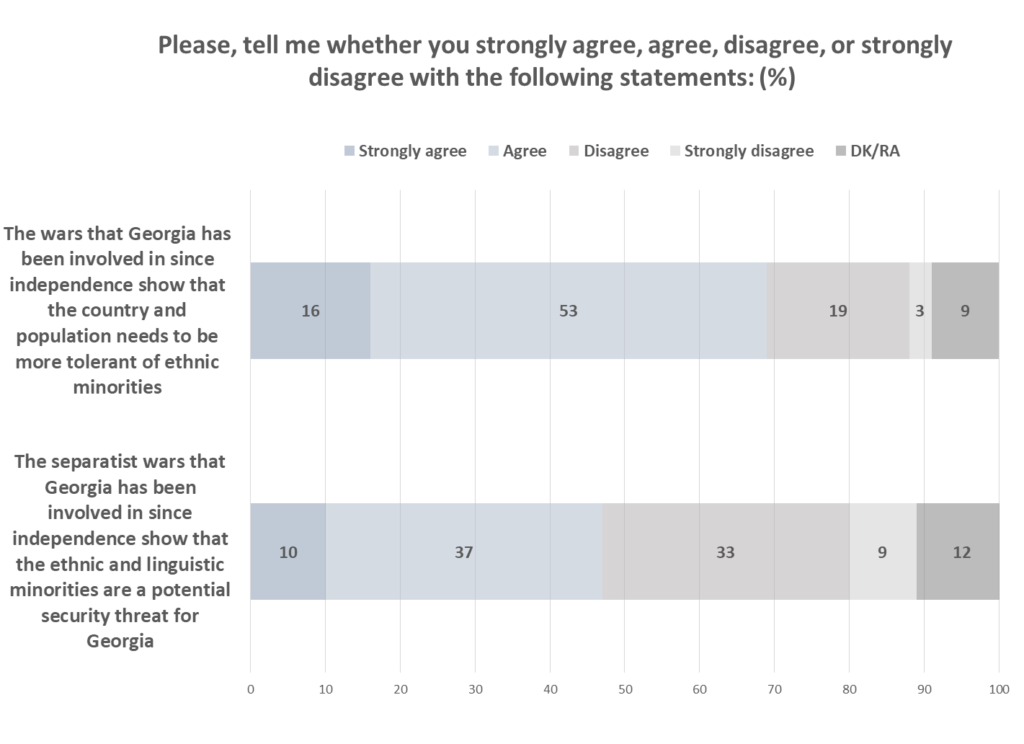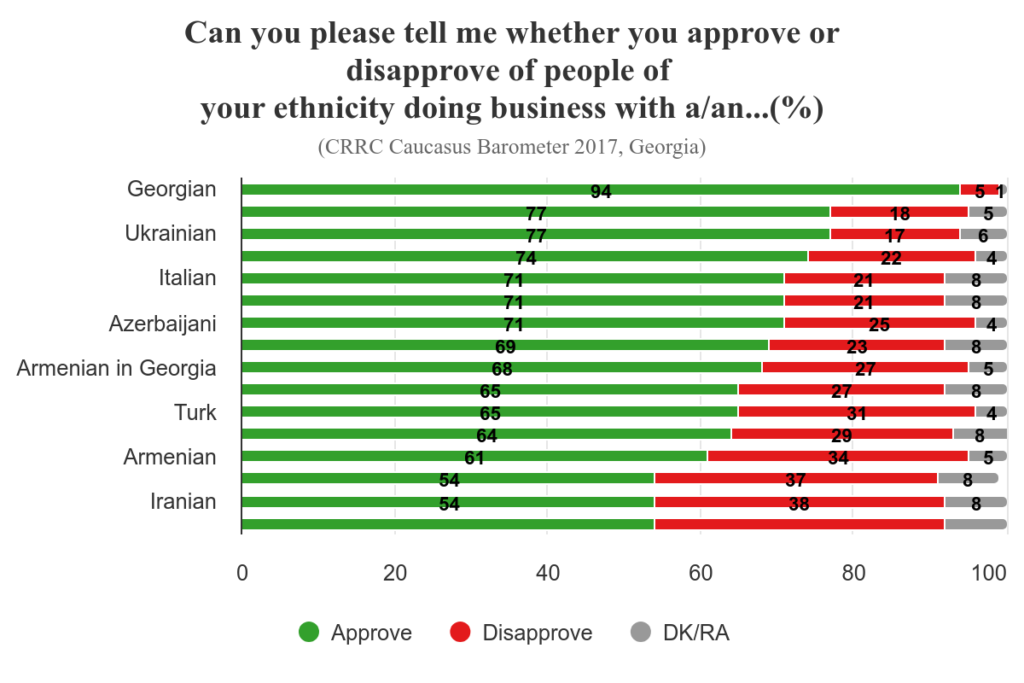
Since the beginning of the 1990s, Georgia has gone through a number of ethnic conflicts that have not been resolved to this day. Given that Georgia has always been a multi-ethnic country, and the traumatic experience of unresolved conflicts, attitudes…




